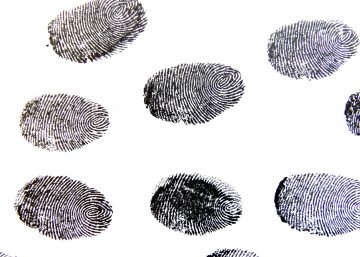Picture this court case which was filed in 2007. A bolt of lightning strikes a yacht and it is damaged. The owners claim damages from the insurance company. The ensuing legal battle changed the rules of digital evidence submission in courts. The court listed four criteria for the admission of digital evidence in court. Blockchain meets all four criteria, thereby adding new dimension to law! Jack R. Lorraine and Beverly Mack’s sure did not realise that claiming damages for their lightning struck yacht would such a milestone on digital evidence.
The law courts across the world are adopting digital ways of working. They are trying their best to move away from paper-based and hand-typed orders to screens and more. A rapidly digitising legal system across the world is ripe for game-changing disruptions. Blockchain in the law courts is a step in that direction.
How can Blockchain be useful in courts of law?
Blockchain finds itself useful in three areas in the court of law
- As evidence to help arrive at judgement
- To help deliver judgements.
- To ensure implementation of the judgements and orders passed.

1. As evidence in law courts
Blockchain’s USP is that it is extremely hard, if not impossible to tamper with it. Tampering a transaction recorded on the Blockchain network would possibly have a one in 15.5 trillion chance and would be easy to spot. This ability to self-audit makes Blockchain very reliable evidence to present in courts. Courts traditionally depend on third-party notary organisations to authenticate evidence. Blockchain as a new method of verifying evidence is a secure, efficient, convenient and cost-effective method.
Implementation examples:
- Chinese courts have allowed Blockchain as evidence from Sept 2018. They have used Blockchain to judge on copyright infringement and other such internet-related cases. Read more here.
- The UK is piloting blockchain as ways to store and provide evidence too.
2. To deliver judgements:
A quick cursory search on the cases of tampering with court orders revealed 88,985 such cases registered in India alone! These statistics underscore the need to explore Blockchain as a solution to even deliver judgements in courts.
Blockchain can be used by the judges and jury to record their votes in the cases assigned to them. Their votes will remain
- Encrypted and transparent: which means that the court can track how many votes in favour or against.
- Immutable: which means that their votes cast in court and recorded cannot be tampered with.
- Any tampering will become immediately visible, alerting the whole system of malpractice.
Security, Immutability and Transparency the Blockchain triumvirate is priceless in courts of law today.
Implementation examples:
- Russia has used Blockchain to record the votes of its judges in the plenary session of the supreme court. This session was conducted over video conference as part of the anti-coronavirus measures of the Russian government. The judges cast their vote on six crucial matters in the plenary session using the Blockchain network. This made the votes transparent, encrypted impossible to tamper and easily accessible to view too.
3. Implementation of judgements
Enforcement of court orders remains an acute problem even in developed countries. Lawyers, notaries, law enforcement agencies get involved at various stages to ensure that the courts order is implemented. There is a whole vocation to implement court orders called judgement enforcers. These judgement enforcers charge 50% of the amount awarded by the court as fees. This area is ripe for Blockchain.
How will Blockchain help in the implementing of court orders? One avenue for Blockchain to aid in the implementation of court orders is through smart contracts. This smart contract carries in it the necessary input and output criteria to help in implementation of court orders. It sounds simple , yet simple is rarely easy. Possibly why this third area of Blockchain implementation in law courts only has work in progress solutions.
Implementation:
- Dubai, is putting in place a Blockchain solutions to ensure court orders are fulfilled even outside the jurisdictions of the country!
Blockchains progress in the courts of law
The courts of today have their origins in the year 1726. In most parts of the world, they continue to be tradition, ceremony and paperwork heavy. Change in courts has been limited to adopting technology like touchscreens, video conferencing, computers etc. It is obvious that the successful adoption of technologies like Blockchain will require not just new tools or skills. A new way of thinking about law and its implementation is foundational.
The progress made by Blockchain in the courts of law as opposed to other industries is slower. We must cut both of them some slack. These laws and courts of today have evolved very little and very slowly over centuries. Blockchain will make progress as it shifts the mindsets, behaviours of the legal industry and not just its tools of usage..
This change is human centric as it is about technology. Blockchain adoption in the courts will ease the friction and frustration of human lives and the strain on resources. Technology, process and culture will shift to amplify human potential.


